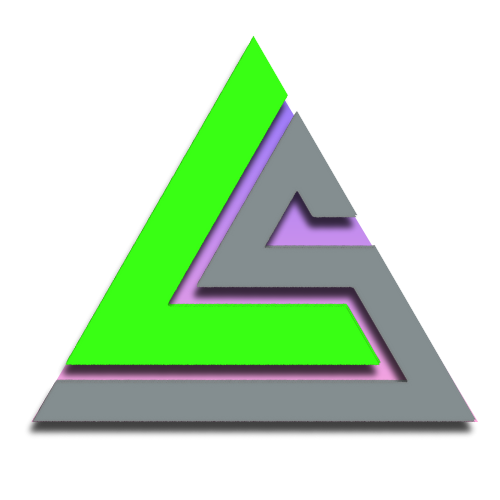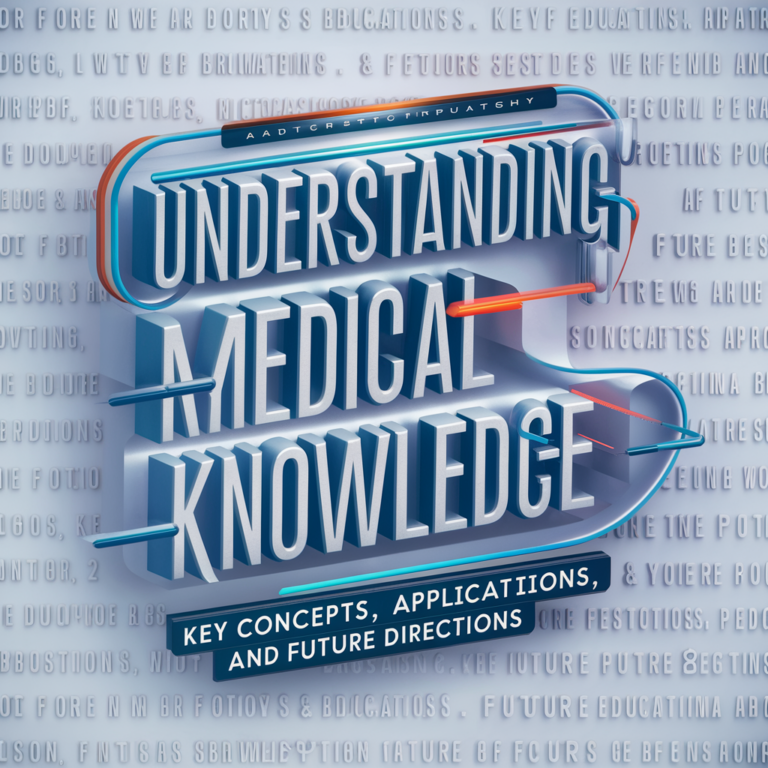Table of Contents
Understanding Medical Knowledge
Medical knowledge forms the cornerstone of modern healthcare, shaping everything from individual patient care to global health policies. This comprehensive guide delves into the multifaceted nature of medical knowledge, exploring its evolution, key concepts, practical applications, and future trajectories.
Did you know? The global medical knowledge base doubles every 73 days, highlighting the rapid pace of advancements in healthcare.
As we navigate through the complexities of medical knowledge, we’ll uncover insights that illuminate the intricate relationship between scientific understanding and clinical practice, and how this synergy drives improvements in human health and well-being.
Insight: The exponential growth of medical knowledge presents both unprecedented opportunities for improving healthcare and significant challenges in knowledge management and application.
Key Takeaway:
Understanding medical knowledge is crucial for healthcare professionals, patients, and society at large. It encompasses a vast array of concepts, from evidence-based medicine to ethical considerations, and finds applications in diverse areas such as personalized treatment and public health initiatives.
Defining Medical Knowledge
Medical Knowledge: The comprehensive body of information, skills, and practices that healthcare professionals use to diagnose, treat, and prevent illness, encompassing scientific understanding, clinical skills, ethical considerations, and patient care strategies.
Medical knowledge is a dynamic, ever-evolving field that integrates:
- Scientific understanding of human anatomy and physiology
- Knowledge of diseases, their causes, and treatments
- Clinical skills and decision-making processes
- Understanding of healthcare systems and policies
- Ethical considerations in medical practice
- Patient communication and care strategies
Historical Evolution of Medical Knowledge
The journey of medical knowledge from ancient times to the modern era is a testament to human curiosity, innovation, and perseverance:
| Era | Key Developments |
|---|---|
| Ancient civilizations (before 500 CE) | Empirical observations, herbal remedies, spiritual healing practices |
| Middle Ages (500-1500 CE) | Influence of religious beliefs, preservation of ancient texts |
| Renaissance (14th-17th centuries) | Advancements in anatomy, scientific method, medical illustrations |
| 19th-20th centuries | Germ theory, antibiotics, modern surgery, public health initiatives |
| 21st century | Genomics, precision medicine, digital health, interdisciplinary approaches |
Insight: The historical evolution of medical knowledge reflects broader societal changes, demonstrating how cultural, technological, and philosophical shifts have shaped our understanding of health and disease.
Key Concepts in Medical Knowledge
Evidence-Based Medicine (EBM)
Evidence-Based Medicine: An approach to medical practice that integrates the best available research evidence with clinical expertise and patient values to guide medical decision-making.
EBM ensures that medical practices are grounded in scientific rigor while remaining responsive to individual patient needs.
Key components of EBM:
- Systematic reviews and meta-analyses
- Randomized controlled trials
- Clinical practice guidelines
- Patient preferences and values
- Clinical expertise
Insight: EBM has revolutionized medical practice by reducing reliance on intuition and untested traditions, leading to more consistent and effective patient care.
Clinical Guidelines and Protocols
Standardized guidelines help ensure consistent, high-quality patient care across different healthcare settings. They serve as roadmaps for clinicians, particularly in complex or high-risk situations.
Benefits of clinical guidelines:
- Improved patient outcomes through standardized care
- Reduced variation in care delivery
- Enhanced efficiency in healthcare delivery
- Support for clinical decision-making
- Basis for quality improvement initiatives
Insight: While clinical guidelines provide valuable structure, they must be applied flexibly, considering individual patient circumstances and emerging evidence.
Medical Ethics
Medical Ethics: The moral principles and values that guide medical practice and decision-making, ensuring patient rights and dignity are respected.
Core principles of medical ethics:
- Autonomy: Respecting patient’s right to make informed decisions
- Beneficence: Acting in the best interest of the patient
- Non-maleficence: Avoiding harm to the patient
- Justice: Fair distribution of healthcare resources
- Confidentiality: Protecting patient privacy
- Veracity: Truthfulness in patient communication
Insight: Ethical dilemmas in medicine often arise when these principles conflict, requiring careful consideration and sometimes difficult choices.
Applications of Medical Knowledge
Patient Diagnosis and Treatment
Medical knowledge informs accurate diagnosis and effective treatment plans, which are crucial for positive patient outcomes.
Key applications in diagnosis and treatment:
- Symptom recognition and interpretation
- Diagnostic testing and imaging
- Treatment selection and personalization
- Monitoring and adjusting care plans
- Prognosis and risk assessment
Insight: The art of medicine lies in applying generalized medical knowledge to the unique circumstances of each patient, balancing scientific evidence with individual variability.
Public Health Initiatives
Medical knowledge is fundamental in designing and implementing public health policies and programs that impact population-level health outcomes.
Examples of public health applications:
- Vaccination programs
- Disease prevention strategies
- Health education campaigns
- Environmental health interventions
- Epidemiological surveillance
Insight: Public health applications of medical knowledge often yield the greatest impact per resource invested, highlighting the importance of preventive and population-based approaches.
Personalized Medicine
Personalized Medicine: An approach that tailors medical treatments to individual patients based on their genetic, environmental, and lifestyle factors.
Key aspects of personalized medicine:
- Genomic profiling for targeted therapies
- Pharmacogenomics for optimized drug selection
- Precision diagnostics for early disease detection
- Lifestyle and environmental factor analysis
- Biomarker-guided therapy
Insight: Personalized medicine represents a paradigm shift from a “one-size-fits-all” approach to a more nuanced, individualized understanding of health and disease.
Challenges in Medical Knowledge Dissemination
Information Overload
Managing the vast amount of medical information available and ensuring its accuracy presents significant challenges for healthcare professionals and systems.
Strategies to address information overload:
- Efficient information filtering and curation
- Development of clinical decision support systems
- Continuous education and training programs
- Improved information organization and accessibility
- Collaborative knowledge platforms
Insight: The challenge lies not just in accessing information, but in discerning what is most relevant and actionable in specific clinical contexts.
Access to Medical Knowledge
Addressing disparities in access to medical information among healthcare providers and patients is crucial for equitable healthcare delivery.
Initiatives to improve access:
- Open-access medical journals and databases
- Telemedicine and remote consultation platforms
- Community health education programs
- Digital health literacy initiatives
- Global health information exchanges
Insight: Improving access to medical knowledge not only benefits individual patient care but also contributes to global health equity and resilience.
Future Directions in Medical Knowledge
Artificial Intelligence and Machine Learning
AI and machine learning are poised to revolutionize the expansion and application of medical knowledge.
Emerging trends in AI and medical knowledge:
- AI-powered diagnostic assistance
- Machine learning for predictive healthcare
- Natural language processing for medical literature analysis
- AI-driven drug discovery and development
- Automated medical imaging interpretation
Insight: While AI offers immense potential, its effective integration requires careful consideration of ethical implications and the preservation of human-centered care.
Global Collaboration and Knowledge Sharing
International collaboration is key to advancing medical knowledge and addressing global health challenges.
Initiatives fostering global collaboration:
- International research consortiums
- Global health information exchanges
- Cross-border telemedicine programs
- Collaborative online learning platforms
- Global health policy coordination
Insight: Global collaboration in medical knowledge not only advances scientific understanding but also promotes health equity and diplomatic relations.
Conclusion: The Future of Medical Knowledge
As we’ve explored, medical knowledge is a vast, dynamic field that continues to evolve rapidly. The integration of technological advancements, ethical considerations, and global perspectives is shaping the future of medicine, driving innovations in patient care, research, and public health.
Key Takeaways:
- Medical knowledge is foundational to healthcare delivery and public health initiatives.
- Evidence-based medicine and personalized approaches are transforming patient care.
- AI and global collaboration are key drivers of future advancements in medical knowledge.
- Addressing challenges in information management and access is crucial for equitable healthcare.
- Continuous learning and adaptation are essential for healthcare professionals in the face of rapidly expanding medical knowledge.
Final Insight: The true power of medical knowledge lies not just in its accumulation, but in its thoughtful application to improve lives, reduce suffering, and advance our understanding of the human condition.
Frequently Asked Questions
Q1: How often does medical knowledge change?
A1: Medical knowledge is continuously evolving. Some estimates suggest that medical knowledge doubles every 73 days. However, the rate of change varies across different medical specialties and areas of research. Core principles may remain stable for longer periods, while specific treatments or diagnostic methods can change rapidly based on new evidence.
Q2: How can patients benefit from advances in medical knowledge?
A2: Patients can benefit in several ways:
Access to more effective and less invasive treatments
Improved diagnostic accuracy leading to earlier interventions
Personalized medicine approaches tailored to individual genetic profiles
Better understanding of preventive measures and lifestyle modifications
Increased ability to participate in shared decision-making with healthcare providers
Q3: What role does artificial intelligence play in medical knowledge?
A3: AI is increasingly important in processing and applying medical knowledge:
Analyzing large datasets to identify patterns and potential treatments
Assisting in diagnostic processes, especially in radiology and pathology
Predicting patient outcomes and treatment responses
Facilitating drug discovery and development
Enhancing medical education through adaptive learning systems
Q4: How can healthcare professionals keep up with the rapid expansion of medical knowledge?
A4: Healthcare professionals can stay updated through:
Continuous Medical Education (CME) programs
Regular reading of peer-reviewed journals and attending conferences
Participation in professional networks and online forums
Utilizing clinical decision support tools and AI-assisted learning platforms
Engaging in research or clinical trials
Q5: What are the ethical considerations in applying new medical knowledge?
A5: Key ethical considerations include:
Ensuring patient safety when implementing new treatments or technologies
Maintaining patient privacy and data security, especially with digital health tools
Addressing equity in access to new medical advancements
Balancing innovation with proven, established practices
Considering the long-term implications of genetic and reproductive technologies

